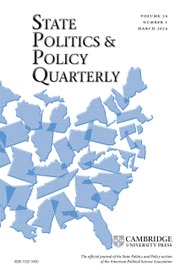Article contents
What Americans Know About Statehouse Democracy
Published online by Cambridge University Press: 07 December 2023
Abstract
Political scientists have largely come to a consensus that “most citizens are politically uninformed” (Delli Carpini and Keeter 1997), but even with increased attention to state-level representation and electoral behavior, political scientists know surprisingly little themselves regarding what Americans know about state politics. Past studies of state political knowledge examine narrow domains of knowledge and make few comparisons between individuals’ understanding of national and state politics. To provide a more comprehensive account of Americans’ state political knowledge, I conducted a novel national survey that included over 30 political knowledge questions. In a descriptive and exploratory analysis, I show Americans demonstrated more knowledge about who their Governor is but less knowledge about who represents them in the state legislature, state government institutions, and the state economy, particularly compared to their knowledge of federal politics. The different levels of political knowledge across different domains and levels of government raise concerns for statehouse democracy and should be considered before testing theories at the state level. To guide future research and surveys, I identify political knowledge questions that discriminate well between those who know little, some, and a lot about state politics across different domains of political knowledge.
- Type
- Original Article
- Information
- Copyright
- © The Author(s), 2023. Published by Cambridge University Press on behalf of the State Politics and Policy Section of the American Political Science Association
References
- 1
- Cited by




